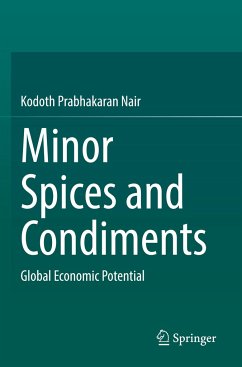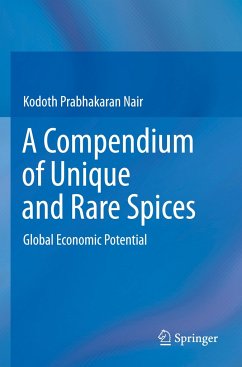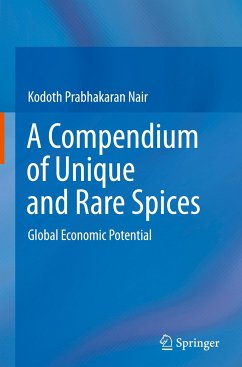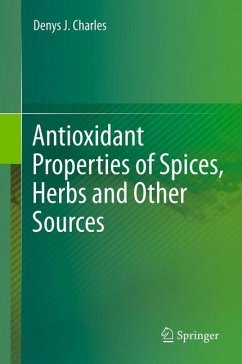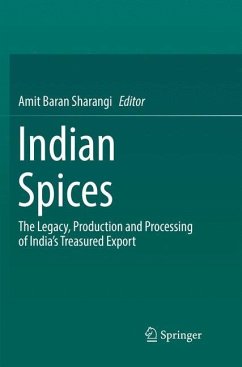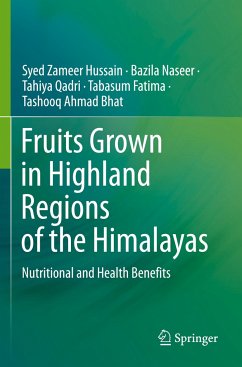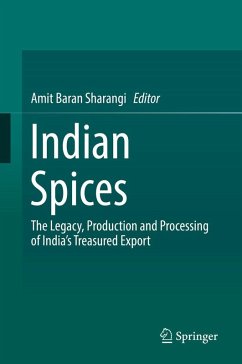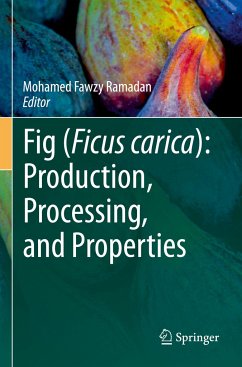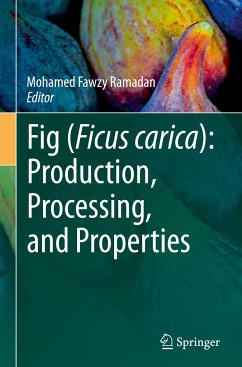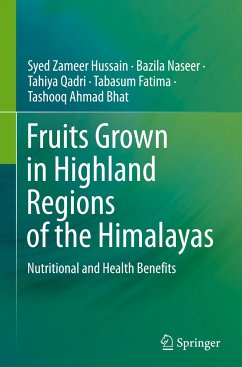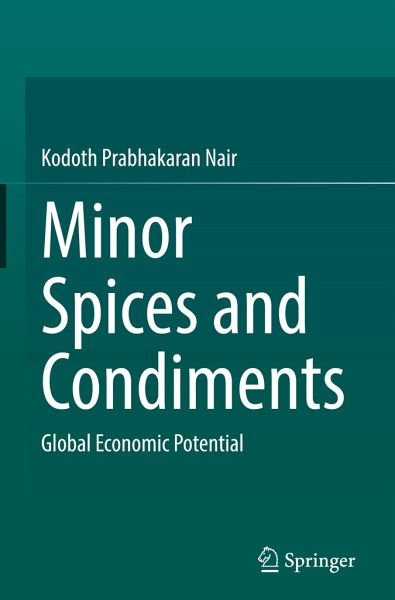
Minor Spices and Condiments
Global Economic Potential
Versandkostenfrei!
Versandfertig in 6-10 Tagen
129,99 €
inkl. MwSt.
Weitere Ausgaben:

PAYBACK Punkte
65 °P sammeln!
Spices can be classified as major spices, like Black pepper, Cardamom, Turmeric, Ginger etc, and minor spices and condiments, and tree spices. This book will discuss exclusively minor spices and condiments.Spices constitute a very important group of agricultural products, which, since antiquity, have been considered indispensable in the culinary art of flavoring foods. The history of spices is very much entwined with the history of mankind. And, some spice crops like Black pepper predominates in the family of spices. In fact, colloquially, it is called "King"of spices and, another, Cardamom, i...
Spices can be classified as major spices, like Black pepper, Cardamom, Turmeric, Ginger etc, and minor spices and condiments, and tree spices. This book will discuss exclusively minor spices and condiments.
Spices constitute a very important group of agricultural products, which, since antiquity, have been considered indispensable in the culinary art of flavoring foods. The history of spices is very much entwined with the history of mankind. And, some spice crops like Black pepper predominates in the family of spices. In fact, colloquially, it is called "King"of spices and, another, Cardamom, is called the "Queen"of spices. There is worthwhile amount of published work, on these in addition to Turmeric and Ginger.
Both ISO (International Organization for Standardization) and ISI (Indian Standards Institution) (now BIS (Bureau of Indian Standards)) experts concluded, after considerable deliberations, that there is no clear-cut division between "spices" and "çondiments", and, as such, they have been clubbed together. The term "Spices and Condiments" applies to such natural plant or vegetable products or mixtures, thereof, used in whole or ground form, mainly for imparting flavor, aroma and piquancy to foods and also for seasoning of foods and beverages like soups etc.
A detailed survey of published literature proves that there are a number of minor spices, which have tremendous commercial potential, globally. And, an authentic book on these will not only serve as an important guide to the academic community, but, also provide a fillip to industry involved in value addition.
Spices constitute a very important group of agricultural products, which, since antiquity, have been considered indispensable in the culinary art of flavoring foods. The history of spices is very much entwined with the history of mankind. And, some spice crops like Black pepper predominates in the family of spices. In fact, colloquially, it is called "King"of spices and, another, Cardamom, is called the "Queen"of spices. There is worthwhile amount of published work, on these in addition to Turmeric and Ginger.
Both ISO (International Organization for Standardization) and ISI (Indian Standards Institution) (now BIS (Bureau of Indian Standards)) experts concluded, after considerable deliberations, that there is no clear-cut division between "spices" and "çondiments", and, as such, they have been clubbed together. The term "Spices and Condiments" applies to such natural plant or vegetable products or mixtures, thereof, used in whole or ground form, mainly for imparting flavor, aroma and piquancy to foods and also for seasoning of foods and beverages like soups etc.
A detailed survey of published literature proves that there are a number of minor spices, which have tremendous commercial potential, globally. And, an authentic book on these will not only serve as an important guide to the academic community, but, also provide a fillip to industry involved in value addition.



